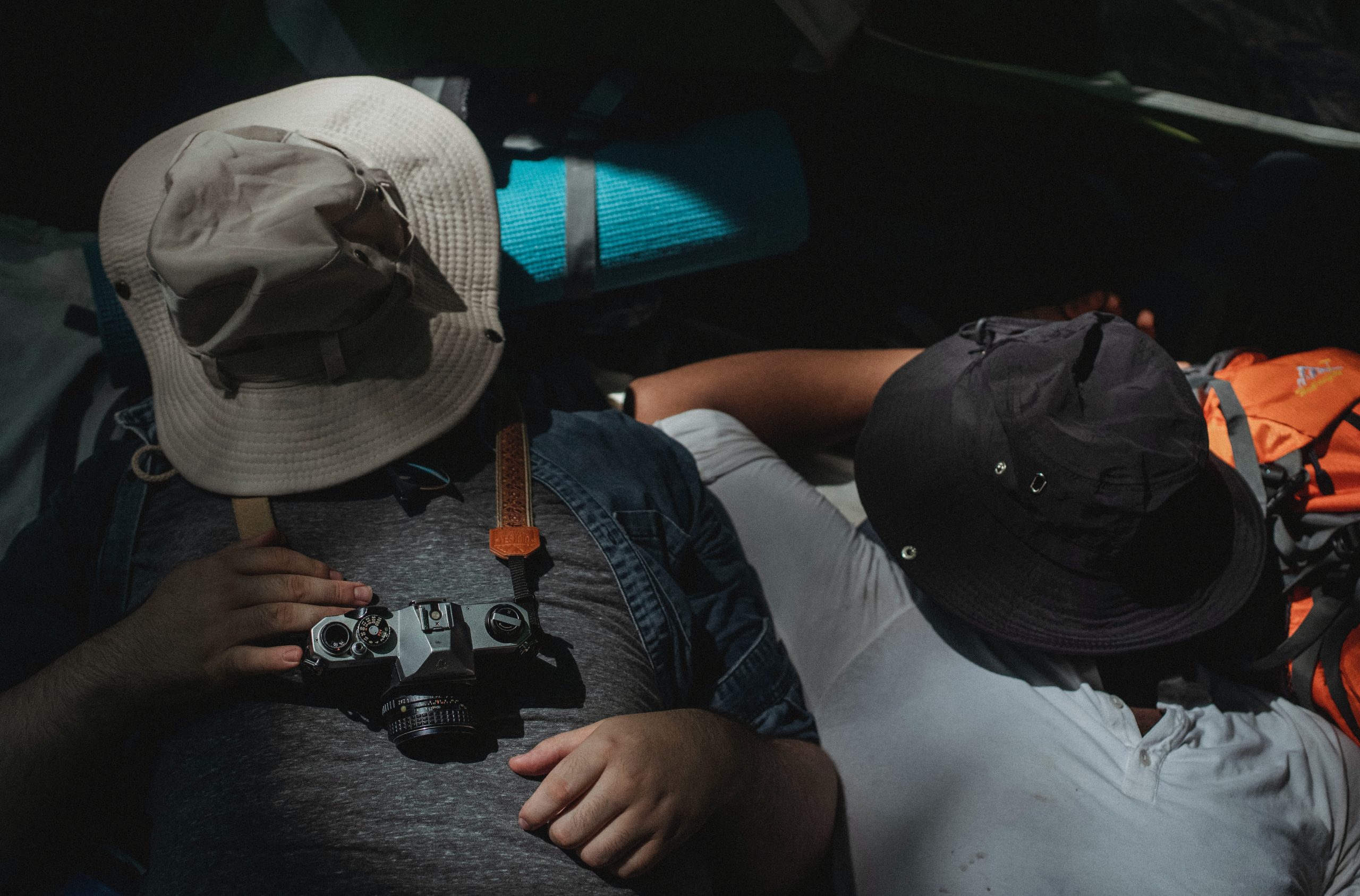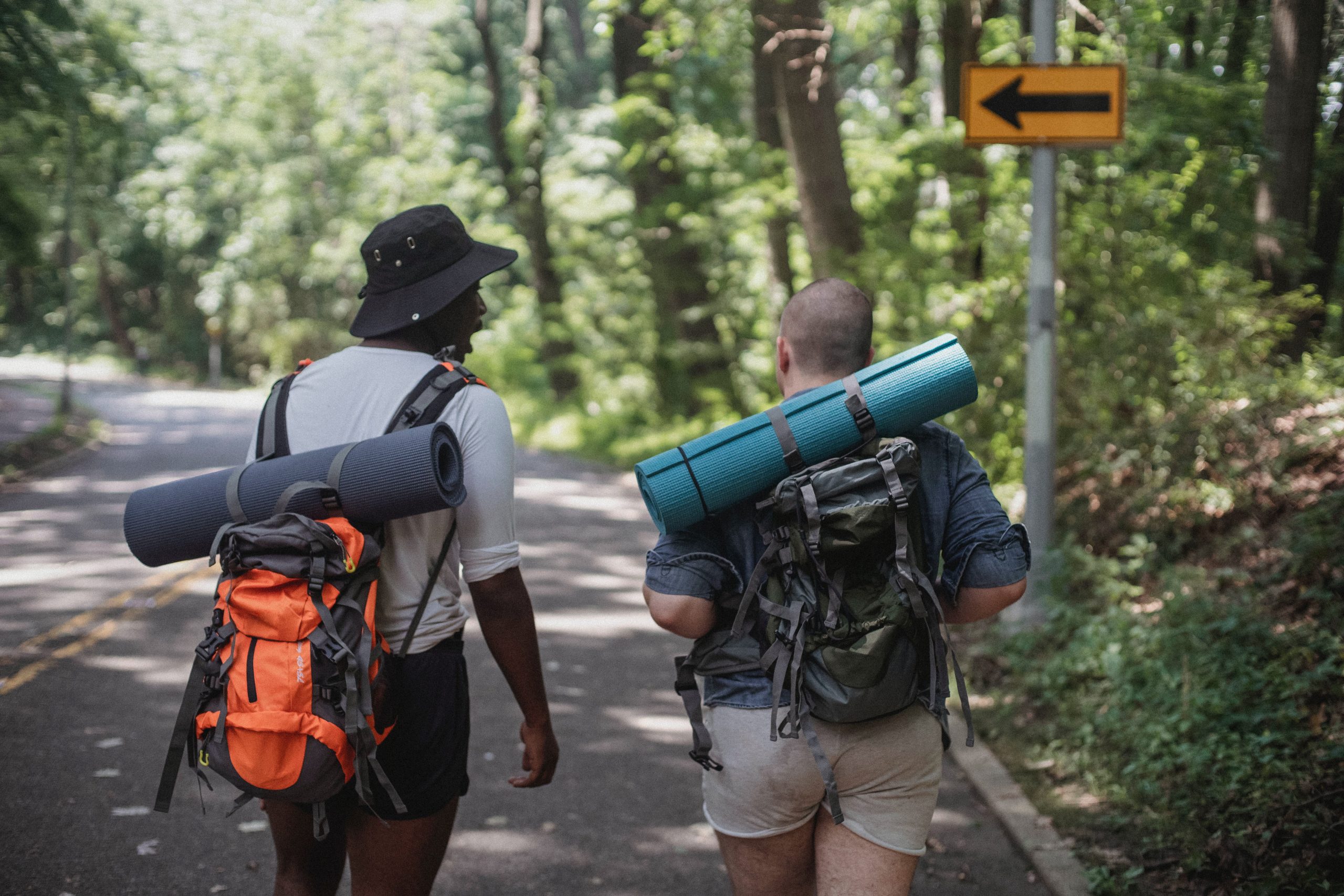A backpacking trip is an incredible way to explore the great outdoors, experience new cultures, and challenge yourself physically and mentally. However, it can also be a challenging experience that requires careful planning and preparation to ensure your safety and enjoyment. From selecting the right gear to staying hydrated and knowing your limits, there are many things to consider when embarking on a backpacking adventure. This article will share valuable tips to help you survive and thrive on your next backpacking trip. Whether you’re a seasoned backpacker or a first-timer, our guide will help you prepare for a successful and memorable journey.
Plan ahead
Planning is key to a successful backpacking trip. Whether you’re heading out for a weekend getaway or an extended adventure in the great outdoors, preparing can help you avoid common pitfalls and enjoy your experience to the fullest. From selecting a suitable campsite to packing essential gear and supplies, there are many factors to consider when planning a camping trip. We will provide tips and insights to help you organize your trip and ensure a safe and enjoyable experience for you and your fellow campers. Here are several ways to organize your trip:
- Pick a final resting place- Pick your destination, learn about the terrain, and any taxes or permissions you must pay before you travel.
- You can determine your route- Please consider the distance you plan to cover daily and any potential obstacles or hazards.
- You could list- everything you’ll need on your journey, including clothing, food, a tent, a sleeping bag, a stove, and more.
- Check the weather – Be prepared for changing weather conditions by checking the forecast for your destination.
- Obtain necessary permits– Some wilderness areas require permits for camping or hiking, so make sure to obtain any necessary licenses before your trip.
- Could you inform someone of your itinerary – Let someone know your itinerary, including your planned route, expected return date, and emergency contact information.
You can pre-book your camping or lodging accommodations to avoid disappointment. It is essential to bring on a backpacking adventure if you want to do it hassle-free.
Pack light
When it comes to backpacking trips, packing light is essential. Carrying too much weight can tire you out and make your journey less enjoyable. To pack efficiently, you must consider your itinerary, weather conditions, and personal needs. A sturdy backpack with padded straps and a hip belt can help distribute the weight and make your journey more comfortable. In this article, we’ll share some tips on how to pack light for your next backpacking trip so that you can focus on the adventure ahead.
- Make a packing list – Make a list of everything you need before you pack. This will keep you from shrinking too much and ensure you keep everything necessary.
- You can only bring the essentials – Don’t bring anything you don’t have to, and leave anything you don’t need. This includes things like clothes, toiletries, and tech. You can try to get something that can serve several purposes, such as a thin scarf that can double as a blanket.
- Use packing cubes – Packing cubes are a great way to stay organized and maximize the space in your bag. Put your clothes, tools, and other items in them to organize your space.
- Consider the climate and season – When choosing what to bring on a backpacking trip, think about the weather and time of year where you’ll be going. You may then dress and prepare for the temperature appropriately.
When preparing for a backpacking trip, it’s advisable to wear your bulkiest goods, such as hiking boots or a hefty jacket, rather than stowing them away in your bag. Imperative gear for an unforgettable backpacking excursion.

Dress appropriately
When embarking on a backpacking trip, it’s crucial to pack the appropriate clothing that suits the weather and terrain. Dressing in layers is a great way to stay comfortable and prepared for temperature changes. Additionally, wearing sturdy, comfortable footwear is crucial for trekking on varied terrain. We’ll share some tips on dressing appropriately for your next backpacking trip so that you can enjoy the outdoors without any discomfort or risk. Here are some suggestions for how to dress right:
- Layer your clothing – Dress in layers to quickly change your clothes as the weather changes. Layering your clothing is critical; start with a moisture-wicking base layer, add a mid-insulating layer, and finish with a waterproof, windproof upper layer.
- Wear comfortable and supportive footwear – Choose solid and comfortable shoes with a good grip to protect your feet and keep them from getting hurt. For rough ground, you should wear hiking boots or shoes with support for your ankles.
- Protect your head and hands – Wear a hat to protect your head from the sun or cold weather, and bring gloves or mittens for cold weather or when working rough surfaces.
- Use sun protection – Wear sunscreen and sunglasses to keep the sun’s dangerous rays from hurting your skin and eyes.
- Choose appropriate clothing for the season – Wear light and airy clothes to stay cool in the summer. Dressing in layers and wearing insulating materials is essential during the colder months.
- Bring rain gear – Always bring a rain jacket and trousers that are waterproof and flexible to stay dry when it rains.

Stay hydrated
A backpacking trip in the great outdoors can be physically demanding, making it vital always to stay hydrated. Proper hydration is critical to preventing heat-related illnesses and maintaining your overall health while on a backpacking trip. This will explore tips and tricks to help you stay hydrated on your next adventure.
- Drink a full day’s worth of water even if you don’t think you’re thirsty. Drinking small amounts frequently is better than waiting until you’re thirsty. If you plan on camping somewhere that doesn’t have easy access to potable water, such as a creek or lake, you should bring a water filter or tablets for water purification.
- Please be sure to bring enough water for your trip. The recommended daily intake of water is two liters per person. However, the precise figure depends heavily on ambient temperature and physical activity conditions.
- Avoiding alcoholic beverages and caffeinated beverages is recommended while traveling due to their diuretic effects.
- Plenty of water-rich fruits and vegetables will help stabilize your internal water balance.

Bring food
When planning a backpacking trip, packing food is essential for your survival. It’s crucial to bring lightweight, high-energy snacks like nuts and dried fruit and heartier options like instant oatmeal and frozen meals. To cook your food, a small stove and fuel are necessary, and if hiking without safe water sources, bring water purification tablets or a filter to ensure you have clean drinking water. Indispensable necessities for a backpacking trip.

Be prepared for emergencies.
You must be ready for situations when you are on a backpacking trip. Some precautions you can take include the following. Crucial components for a successful backpacking trip, be prepared for any emergency by bringing bandages, antiseptics, painkillers, and other OTC or prescription drugs you may require. Know what you have in your kit before you leave on your journey.
- Know how to use your gear – You must know how to use your equipment, like your tent, stove, and water filter. You can avoid any unpleasant surprises by trying them before you leave.
- Navigation- If you get lost, or need directions explained, it’s a good idea to bring a map and compass and know how to use them. GPS devices can be helpful, but they can break or lose connection, so it’s essential to have a backup.
- First aid- If you are lost or hurt and have to stay put for a while, you’ll be grateful that you brought some extra food and water. You can use this as a means of sustenance until aid arrives.
Could you ensure you have a strategy for contacting people before you leave? You may accomplish this in several ways, including telling someone where you’ll be and when you intend to return, bringing along a satellite phone or two-way radio, and charging your phone in advance to use it in places with no cell coverage.
Learn the fundamentals of staying alive; know how to make a fire, establish a shelter, and purify water. In an emergency, these skills can be beneficial on your backpacking trip.

Respect nature
Respect for nature is crucial when backpacking. As you embark on your outdoor adventure, minimizing your environmental impact is essential. This includes staying on designated trails, leaving no trace behind, and being mindful of wildlife. By respecting nature, you can help preserve these beautiful wilderness areas for future generations.
- Pack out your trash – Take all your junk, including leftover food, papers, and boxes. Don’t leave anything behind; when you return to society, put your trash in the correct bins or places.
- Leave vegetation and wildlife undisturbed – Avoid stepping on plants or scaring away animals. Respect the natural world and try not to change it. Stay on known trails and camp at established sites to leave as little of a mark as possible.
- Use designated fire rings or stoves – Only use those made for that purpose if fires are allowed. Refrain from building fires with natural things or leaving fires unchecked.
- Use eco-friendly products – When you can, choose eco-friendly goods like soap and toiletries that break down in the environment. Don’t use harsh chemicals or dirty the world by throwing away things that won’t break down.
- Please be aware of noise levels – Please keep the noise down so you don’t scare away wildlife or other walkers. Respect the quiet times at campgrounds and don’t play loud music or yell.

Conclusion
Backpacking trips are a great way to explore nature, challenge yourself physically and mentally, and experience the beauty of the great outdoors. However, your trip’s success highly depends on how well you plan and prepare for it. You should research your destination thoroughly, including the climate, terrain, and local regulations. This information will help you decide what gear to pack, clothing, and activities to plan.
Another critical aspect of planning a backpacking trip is creating an itinerary with enough time for rest and recovery. You should also be aware of your trip’s potential risks and hazards, such as inclement weather, wild animals, or hazardous terrain. Having a contingency plan in place for emergencies is also crucial.
When packing for a backpacking trip, it’s important to remember that every ounce counts. You should prioritize items that serve multiple purposes, such as a lightweight tent that can also be used as a rain shelter. Additionally, investing in high-quality gear will help ensure your equipment lasts longer and performs better in the field.
The key to a successful backpacking trip is being prepared, adaptable, and respectful of the environment. With careful planning and attention to detail, you can make your next backpacking adventure an unforgettable experience.
Happy Backpacking!

